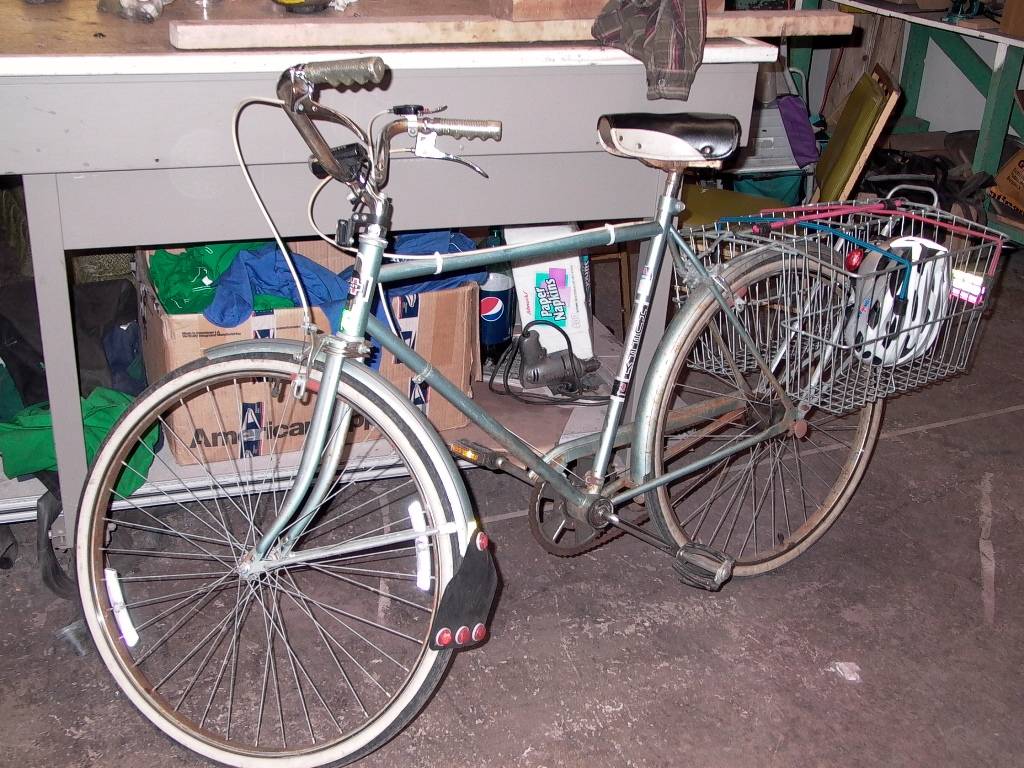 When you hear the name Huffy, what comes to mind? If you ask the average person, they would probably say bicycles. Ask a cyclist, and they would probably say heavy, poor quality bicycles purchased at a department store.
When you hear the name Huffy, what comes to mind? If you ask the average person, they would probably say bicycles. Ask a cyclist, and they would probably say heavy, poor quality bicycles purchased at a department store.
But that was not always the case for the company based out of Dayton, Ohio. There are certainly some quality or dependable — and in some cases, collectible — bicycles made by Huffy. They have also made some decent “basic transportation” bicycles if not exceptional rides. The internet is full of stories of Huffy bikes that have served their owners well before being passed on to others, while some bike snobs trash them without mercy. The truth may lie somewhere in the middle.
If someone unilaterally says that all Huffys are junk, there are several examples of quality or dependable bicycles you can refer them to.
Huffy, for much of the 1930’s to 1960’s, manufactured bicycles that were equivalent to — if not as fancy as — Schwinn, and they have found a niche among collectors. However, older Schwinns still are considered more collectible. The older Huffy bikes were quite nice for their era and can be a great pick-up, if you can find them at a garage sale or craigslist.
There have been some more recent bikes of the late 1960’s to 1980’s that are also of world class quality. There are also several Raleigh-made three-speeds and Carlton road bikes that were imported by Huffy which are very nice.
Tour de France winner Greg Lemond even rode a Huffy-branded bicycle for awhile in the early 1980’s. Several different American bike builders made bikes for serious competition that carried the Huffy label. Mike Melton built the 1984 Olympic bikes, and Serotta built the 7-11 professional cycling team bikes. There are also a line of professional level BMX bikes that the company released in the 1990’s.
Of course, Huffy didn’t actually produce these bicycles, but you can’t really hold that against them. Very few companies actually manufacture their own bikes anymore, either. Huffy doesn’t assemble their current bikes either, if that matters; in fact, many of the bikes that you ride currently were made in a factory not associated directly with the brand.
Schwinn did not make most of their bikes in the last 30 years, as Giant and other manufacturers made them. Most, if not all, department store bikes are mass-produced in Asian factories that aren’t owned by the company labeling and/or marketing the bicycles. Several different brands are actually the same or similar bikes coming off the same Taiwan or China production lines with different paint and stickers on them. It is time to stop holding that against companies like Huffy. Also, most folks don’t know that Raleigh USA bikes from most of the 1980’s were actually licensed by Huffy, which sold them in the United States, but those bikes were produced in Asia as well.
 Of the actual Huffy bikes post 1970, there are some dependable transportation available if you know where to look. Cycling on the Cheap is about finding the right mode of transportation as cheap as possible, and for many, a Huffy might make sense. Most likely these will not be light in weight but will get you from point A to point B and have the added advantage of being largely theft proof. You don’t see too many folks cutting any lock to get at most Huffy bikes. Huffy also made some dependable three speed bikes one of which (pictured at right) is ridden by staunch Huffy defender Tony Cherolis of the Bike Project.
Of the actual Huffy bikes post 1970, there are some dependable transportation available if you know where to look. Cycling on the Cheap is about finding the right mode of transportation as cheap as possible, and for many, a Huffy might make sense. Most likely these will not be light in weight but will get you from point A to point B and have the added advantage of being largely theft proof. You don’t see too many folks cutting any lock to get at most Huffy bikes. Huffy also made some dependable three speed bikes one of which (pictured at right) is ridden by staunch Huffy defender Tony Cherolis of the Bike Project.
Huffy models to look for:
1. Anything pre-1960.
2. Any rebadged Huffy road bikes from the 1980’s
3. Pro-level BMX bikes from Huffy
4. Any Huffy made in England (Raleigh) built.
5. Any Huffy Carlton (road bikes built in England.)
6. Any Huffy 3-speed.
7. Huffy Aerowind
8. 1970’s Huffy road bikes (especially those built in Japan). Examples: Santa Fe, Catalina.
9. Huffy Concours circa 1984 made by Motobecane for Huffy.
10. Any Huffy that gets you around town and you are happy with. There are some decent Huffy transportation bikes out there.
Depending on what your needs or desires are, there might be a place for a Huffy in your future if you know what you are looking for. I would not buy a new one, but rather scout out a used one at garage sales; Craigslist or the Bike Project and you just may have the perfect campus bike. Of course, it is good to have a place like the Bike Project to help keep these bikes tuned up, as many of them did not come off the store shelves properly tuned.
Good hunting and keep pedaling.








